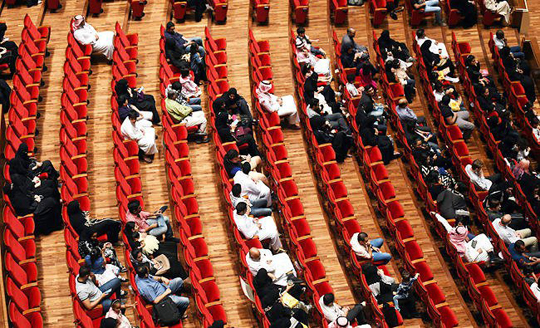Riyadh, May 8: The entertainment sector supported by the General Authority for Entertainment (GAE) generates SR2.02 for every riyal spent on the organization of an event, according to a report by the GAE.

Some 106 events organized in 21 Saudi cities in a period of less than one year were responsible for millions of riyals spent in the Kingdom, instead of being spent abroad, said the report.
Since its inception, on May 7, 2016, the GAE has adopted a clear-cut approach that focuses on empowering private sector institutions to organize and provide valuable programs using the latest developments in this industry and in line with long-standing values of the Kingdom, based on the teachings of Islam, the report said.
The entertainment sector, the report also said, is among the top job-generating and skill-supporting sector. It has also played a role in instilling the concept of volunteering, and in linking job seekers to businessmen, thus contributing to helping realize the Saudi Vision 2030, the report said.
GAE will go continue its programs and further boost the entertainment industry, and will seek to partner with the private sector, thus becoming a key job provider for Saudi youths, the report said.
GAE has so far provided some 20,000 jobs in this sector since its inception and supported some 106 events with visitors exceeding 2.3 million, the report said.
GAE plans to lend its support to more than 3,000 events that fall under seven categories, in cooperation with other government agencies, the report said.
The report said that GAE will play an important part in the realization of the Vision 2030 as it will support the efforts of private and non-profit sectors from different regions and provinces to organized entertaining events and functions, as well as help use government funds to establish and develop entertainment centers where citizens and residents can put to good use their capacities and talents.
GAE will also encourage local and foreign investors, partner with global entertainment companies to establish cultural and entertainment projects, such as libraries and museums, as well as support talented citizens, be they writers or producers, and encourage cultural and entertainment activities that cater to the taste of all categories of people, the report said.
GAE will strive to generate more jobs and support the economy through the sale of tickets and food, through transportation or indirectly through spending on goods and services linked directly to certain events, such as production and marketing services, the report added.
Detailing the social objectives, the report said GAE will provide different entertainment options in order to meet the requirements of different categories of population, will contribute to cementing social cohesion and tolerance, and improve the Kingdom’s image in the world.
According to the report, the number of visitors to GAE-sponsored events in 21 cities Kingdom-wide increased steadily from 34,000 in October 2016 to more than 2.3 million by the end of April 2017.






Comments
Add new comment